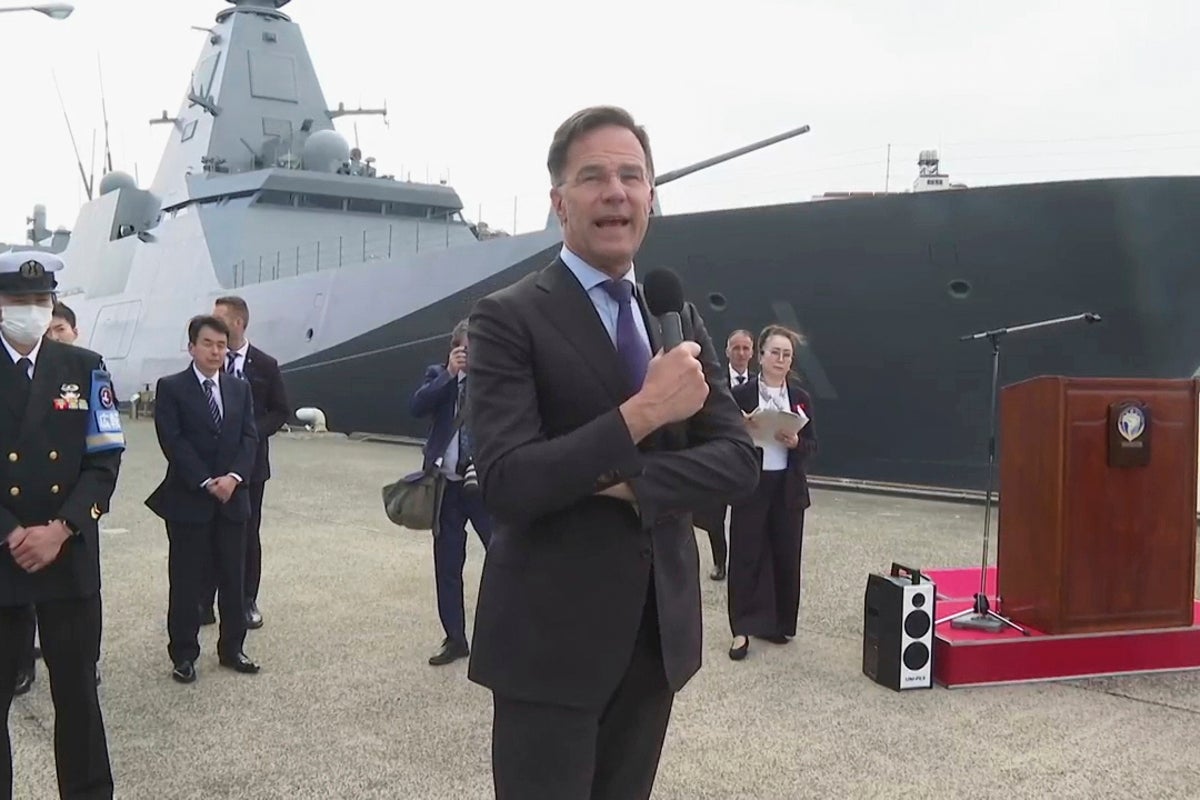
The NATO chief on Tuesday raised concern about China's arms buildup and military drills near Taiwan and called on the organization's members and friendly nations to work together to keep free and open sea lanes in the region.
“China is supporting Russia's efforts. China is building up its armed forces, including its navy, at a rapid pace," NATO Secretary General Mark Rutte told reporters as he wrapped up his visit to the Japanese navy port of Yokosuka. “We cannot be naive, and we really have to work together, assess what is happening.”
Rutte said NATO is worried about China's military exercises near Taiwan and “we follow them very closely.”
Japan considers China as a threat in the region and has in recent years accelerated military buildup, including preparing to acquire strikeback capability with long-range cruise missiles.
Japan, in addition to the United States, has expanded its defense ties with other friendly nations in the Indo-Pacific and Europe, as well as NATO, saying Russia's war on Ukraine underscores that security risks in Europe and Asia are inseparable.
The United States wants NATO members to be more involved in the Indo-Pacific region, Rutte said. He welcomed U.S. Secretary of Defense Pete Hegseth's recent trip to Japan to ensure Washington's commitment to strengthen its alliance with Japan and presence in the region. He stressed its importance, noting that Japan is the only member of the Group of Seven that is not in NATO.
NATO has also stepped up its ties with Japan, South Korea, Australia and New Zealand, known as the IP4, in recent years, with their officials attending NATO ministerial and summit meetings.
Rutte, visiting Japan for the first time since becoming head of the Belgium-based military alliance in October, was set to hold talks with Japanese Defense Minister Gen Nakatani later Tuesday and Prime Minister Shigeru Ishiba on Wednesday.
Ishiba has advocated a NATO-like security framework in Asia, though he has not given details.
Countries with shared security concerns are strengthening ties as competition escalates between the United States and China. Beijing has criticized NATO’s growing ties with the Indo-Pacific partners, worried that Washington may move to form a NATO-like alliance in the region.
___
Yamaguchi reported from Tokyo.







